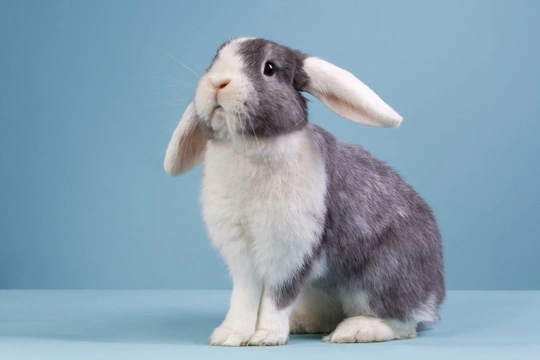
Best Rabbit Breeds for Kids: 5 Family-Friendly Picks
If you are keen to allow your child to get their first pet, and have them be involved in its care and management as well as enjoying the cuddles, you might be thinking about getting them a rabbit, which is often many children’s first experience of having their own pet.
There are a lot of advantages to getting a pet rabbit for your child as opposed to a more high-maintenance pet such as a dog, or a more independent one like a cat, but it would be a major error in judgement to think that this means that a rabbit is an easy or “beginner” pet, and does not need specialist, conscientious care.
If you have decided that a rabbit is the right pet for your child, you should still understand the fact that you will need to be the ultimate person responsible for its care and husbandry, and be willing to supervise your child’s care of it, and step in if needed. Providing that you understand this, and that your child too is willing and happy to have a rabbit and help to care for it, as well as learning how to handle and look after it nicely, the next step is deciding what type of rabbit to get!
There are a huge number of different domestic rabbit species that are commonly kept as pets in the UK, and some make for better pets for the novice or younger keeper than others. In this article, we will look at five of the best rabbit breeds for responsible children to own, and why they can make for such good pets. Read on to learn more.
The miniature lop-eared
The miniature or mini lop-eared rabbit is a highly desirable and very popular species, due to their undeniable cuteness! They are not only much smaller than most other rabbit species, but their floppy ears give them added appeal, which means that they have a keen following of fans with both the young and old alike!
They are not only kind and gentle but also, tend to be among the most playful and inquisitive of all of the rabbit species, and are often even amenable to doing tricks and learning basic commands! This makes them a good pick for older, enthusiastic children that want a pet that will interact and play with them, but their small delicate size does mean that they need careful handling, particularly by younger children.
The Dutch rabbit
TheDutch rabbitis one of the most common and widely recognisable rabbit species in the world, and many adults have happy childhood memories of keeping a couple of these as their pets!
They tend to be calm and docile and tame up easily, and are not particularly highly strung nor prone to stress. They are generally friendly and enjoy the company of people, and assuming that they are properly handled and socialised and always treated kindly, they are one of the best and gentlest breeds of rabbit for responsible children.
The Harlequin
The harlequin rabbit is one of the most distinctive of the popular rabbit species, having a colourful coat pattern in either two or three colours, often distributed as distinct stripes along the body. Whilst harlequin rabbits need to have very distinctive and impressive markings to be considered to be of show quality, there are plenty of pretty harlequins offered for sale as pets as well, and these often make for excellent children’s pets.
They are not only calm and kind and very amenable to snuggling up on your lap, but they also tend to be playful and intelligent, and can easily learn to use a litter tray as a house rabbit, and also, potentially learn tricks!
The Chinchilla
The chinchilla rabbit is specially bred for their unique coat, which is short, grey and very, very fluffy and silky, and designed to resemble that of the chinchilla rodent! This makes them very pleasant pets to stroke and pet, and also, they tend to make for excellent house rabbits that soon get used to sharing a home with children and potentially, other pets too.
They are one of the best breeds for children, as they are intelligent and playful, and curious enough to want to get involved in everything!
The Himalayan
The Himalayan rabbit is well renowned as one of the calmest and most laid-back of all rabbit breeds, which makes it popular worldwide as a child’s pet. Again, they are both playful and gentle and calm, and are highly unlikely to bite or scratch when properly handled. They often deliberately seek out the presence of their family for entertainment and attention, and will train up well to using a litter tray, which means that they are an excellent pick for keeping as a house rabbit.



